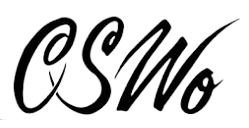Mr. Spock and Homer Simpson: The Two Sides Of Human Economic Behavior
Description
Explore how economics can be used to explain everyday behavior in a myriad of real-life situations. Discuss the work of the most influential and seminal minds in the economics profession.
Most people think of economists as seers who try to predict the future of the stock markets, government deficits, unemployment, etc.—a far too parochial view of what economists do. Fascinating economists are engaged in the study of human behavior. The most fertile minds in economics today deal with observing the world and trying to understand it, not predict it.
Attendees will gain an appreciation for how the economist views the world and the power of their theories to explain why people behave the way they do.
Highlights
- How parents decide to divide their wealth.
- Is population growth a blessing or a curse?
- Does the government deficit and the trade deficit hurt or help the economy?
- Why do laundries charge less for men’s shirts than for women’s?
- Do companies really plan obsolescence?
- Why are shopping carts getting bigger?
- Why is movie theater popcorn so expensive?
- Should there be a free market in human organs?
Objectives
- Learn why economists assume people are “rational” despite it sometimes being false.
- Realize that humans are both Mr. Spock (rational) and Homer Simpson (irrational), and how to optimize decisions from both.
- Explore how to use various economic models and theories to explain human behaviors—the reactions to various policies and incentives.
- Understand the principle of revealed preference; why there is usually a gap between what people say and what they do.
- Gain an understanding of the critical importance of price theory: how prices transmit information, allocate resources and distribute income.
- Learn why people cheat and learn the theory of fraud.
- Debate the morality and ethics of various policies and issues facing citizens today.
Designed For
CPAs, managers and financial professionals.
Registration for this course has passed.
Course Pricing
|
Member Fee
Applicable if you are a HSCPA member in good standing. |
$120.00 |
|---|---|
|
Non-Member Fee
Applicable if you are not a HSCPA member. |
$188.00 |
| Your Price | $188.00 |







